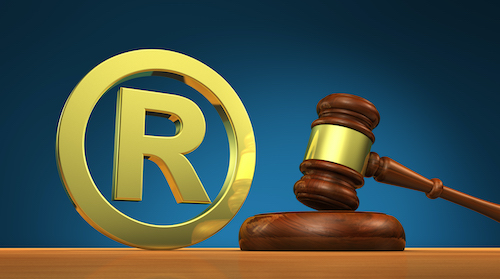“Where the errors in a survey are too fundamental or too pervasive, courts often exclude surveys in trademark cases.”
 Like all expert opinion testimony, an expert’s survey-based opinions in trademark cases are only admissible if they meet the standards set forth in Fed. R. Evid. 702 and Fed. R. Evid. 403. Rule 702 codifies the Daubert requirement for admissibility of scientific evidence. Rule 403 allows a court to exclude evidence if its probative value is substantially outweighed by a danger of, among other things, “unfair prejudice, confusing the issues, [or] misleading the jury.”
Like all expert opinion testimony, an expert’s survey-based opinions in trademark cases are only admissible if they meet the standards set forth in Fed. R. Evid. 702 and Fed. R. Evid. 403. Rule 702 codifies the Daubert requirement for admissibility of scientific evidence. Rule 403 allows a court to exclude evidence if its probative value is substantially outweighed by a danger of, among other things, “unfair prejudice, confusing the issues, [or] misleading the jury.”
Avoid Errors
The standard for admissibility of surveys is generally forgiving. Courts will often allow an expert to testify even if the report appears to contain errors. Courts frequently hold that the errors go to the weight of the opinion, not its admissibility, and expect counsel to expose the errors for the jury during cross-examination. However, where the errors in a survey are too fundamental or too pervasive, courts often exclude surveys under both Fed. R. Evid. Rule 702 and 403. See Malletier v. Dooney & Bourke, Inc., 525 F.Supp.2d 558, 562-63 (S.D.N.Y. 2007).
Accordingly, when working with an expert in planning a survey and in reviewing the expert’s draft report, counsel should be sure to consider these questions:
- Will the survey use the correct methodology? Is the Squirtco–format appropriate (in which the survey shows respondents both the plaintiff’s and the defendant’s trademarks) or should the survey employ the Eveready format (in which the survey only shows the respondents the defendant’s trademark)?
- Will the survey be limited to respondents who are potential future purchasers? Courts have excluded surveys that have included current owners, even where it might have been reasonable to infer that current owners would be highly likely to purchase the same goods in the future. See Universal City Studios, Inc. v. Nintendo Co., Ltd., 746 F.2d 112, 118 (2d Cir. 1984).
- Will the survey employ proper stimuli? Will the survey show the participants the marks as commercially used? That is, will the survey show the marks in the context of the parties’ marketing materials or will it, instead, present the mark in plain font without any marketing materials? See Superior Consulting Services, Inc. v. Shaklee Corporation, et al., Case No. 6:16-cv-2001-Orl-31GJK (M.D. Fla. May 4, 2018).
- If it is appropriate to show the marks as commercially used, will the product images in the survey display the allegedly trademarked feature and allegedly infringing feature to the survey subjects in a manner that replicates marketplace conditions? Will the stimuli focus the survey respondents on the actual mark at issue or will they cause survey subjects to consider the design of the product as a whole? Dooney & Bourke, Inc., 525 F.Supp.2d at 593-4.
- Will the survey use a proper control? The stimulus for the survey’s control should “share[] as many characteristics with the experimental stimulus as possible, with the key exception of the characteristic whose influence is being assessed.” Reference Manual on Scientific Evidence at 258 (Federal Judicial Center 2000). See Cumberland Packing Corp. v. Monsanto Co., 32 F.Supp.2d 561, 75 (E.D.N.Y.1999) (“Given the inadequacy of the controls, one cannot determine from the data the extent of the relevant type of confusion by indirectly approximating the background noise.”).
- Will the survey improperly ask respondents for legal conclusions, for example, whether the respondents believe the defendant “needed to get permission” to use a mark? Dooney & Bourke, Inc., 525 F.Supp.2d at 597.
- Will the survey ask respondents not to guess or provide “I don’t know” as a possible response?
- Does the expert’s draft report accurately describe the survey that was performed?
- Does the draft report accurately code, tally, and categorize the responses received?
- If the expert conducted a pilot survey that yielded results that were inconsistent with the final survey, does the draft report acknowledge that fact?
Control What You Can
An expert’s testimony should be credible, persuasive, and most of all, admissible. Although counsel cannot control every aspect of the expert’s analysis and testimony, aspects of the expert’s work are within counsel’s control: ensuring that the expert’s methodology is consistent with current law and that the report accurately describes the survey performed and analyzes the data the survey elicited. Although counsel cannot ensure that the expert will ultimately persuade the finder of fact, counsel can, and should, maximize the probability that the expert’s testimony will withstand a Rule 702 or Rule 403 challenge.

![[IPWatchdog Logo]](https://ipwatchdog.com/wp-content/themes/IPWatchdog%20-%202023/assets/images/temp/logo-small@2x.png)

![[Advertisement]](https://ipwatchdog.com/wp-content/uploads/2024/04/UnitedLex-May-2-2024-sidebar-700x500-1.jpg)
![[Advertisement]](https://ipwatchdog.com/wp-content/uploads/2024/04/Artificial-Intelligence-2024-REPLAY-sidebar-700x500-corrected.jpg)
![[Advertisement]](https://ipwatchdog.com/wp-content/uploads/2024/04/Patent-Litigation-Masters-2024-sidebar-700x500-1.jpg)

![[Advertisement]](https://ipwatchdog.com/wp-content/uploads/2021/12/WEBINAR-336-x-280-px.png)
![[Advertisement]](https://ipwatchdog.com/wp-content/uploads/2021/12/2021-Patent-Practice-on-Demand-recorded-Feb-2021-336-x-280.jpg)
![[Advertisement]](https://ipwatchdog.com/wp-content/uploads/2021/12/Ad-4-The-Invent-Patent-System™.png)






Join the Discussion
No comments yet.